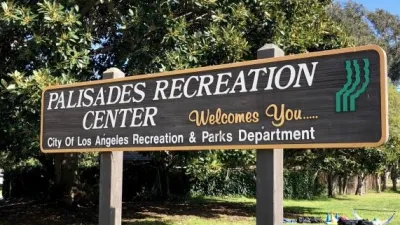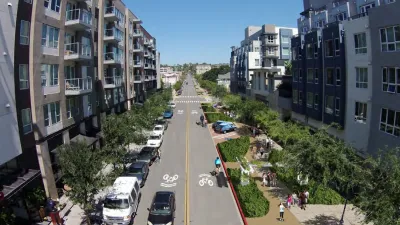On the one-year anniversary of the beginning of Occupy Wall Street, Richard Sennett looks at the movement's legacy with regards to rethinking public space.
Although America's Constitution begins with the protection of the freedom of assembly and speech, cities have been able to erode those protections over time by requiring permission for groups to gather in public, and by the blurring of the lines between public and private space. However, with tents and sleeping bags, the Occupy movements were able to test each city's limits on freedom of assembly, writes Sennett.
And, in addition to shining a spotlight on issues such as the "ambiguity in the distinction between 'public' and 'private' in urban areas," and the ambiguity between "secular and sacred space in the city," one of the movement's most profound successes has been to challenge the ways in which urbanists, like Sennett, think about the city.
Says Sennett, "Jane Jacobs once famously declared that 'if density and diversity give
life' to public space, 'the life they breed is disorderly.' In my
planning work, I've translated this idea into practice by seeking to
make self-contained public spaces more porous-for instance, by extending
open-air markets into side streets in Beirut or punching more doors
into single-entrance buildings in London."
FULL STORY: New Ways of Thinking About Space

Alabama: Trump Terminates Settlements for Black Communities Harmed By Raw Sewage
Trump deemed the landmark civil rights agreement “illegal DEI and environmental justice policy.”

Study: Maui’s Plan to Convert Vacation Rentals to Long-Term Housing Could Cause Nearly $1 Billion Economic Loss
The plan would reduce visitor accommodation by 25% resulting in 1,900 jobs lost.

Planetizen Federal Action Tracker
A weekly monitor of how Trump’s orders and actions are impacting planners and planning in America.

Passengers Flock to Caltrain After Electrification
The new electric trains are running faster and more reliably, leading to strong ridership growth on the Bay Area rail system.

Texas Churches Rally Behind ‘Yes in God’s Back Yard’ Legislation
Religious leaders want the state to reduce zoning regulations to streamline leasing church-owned land to housing developers.

Grand Rapids Mayor Proposes Garage Conversion Plan
The mayor says allowing homeowners to convert garages to dwelling units could alleviate the city’s housing shortage.
Urban Design for Planners 1: Software Tools
This six-course series explores essential urban design concepts using open source software and equips planners with the tools they need to participate fully in the urban design process.
Planning for Universal Design
Learn the tools for implementing Universal Design in planning regulations.
Caltrans
Smith Gee Studio
Institute for Housing and Urban Development Studies (IHS)
City of Grandview
Harvard GSD Executive Education
Toledo-Lucas County Plan Commissions
Salt Lake City
NYU Wagner Graduate School of Public Service




























